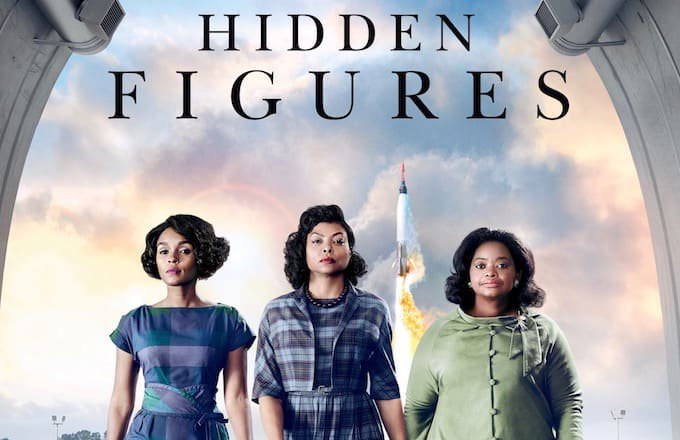As SF/F nerds, we loved the math, science, diversity, and real-life space adventures in Hidden Figures. In fact, we were hungry for more. There are plenty of lists recommending more non-fiction titles similar to Margot Lee Shetterly’s masterpiece, but not many featuring fiction. So we rounded up 5 great science fiction novels sure to grab the imagination of everyone who loved the fiercely talented women of Hidden Figures.
opens in a new windowThe Calculating Stars by Mary Robinette Kowal
opens in a new window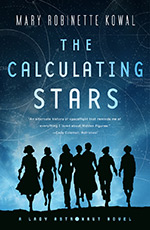 Mary Robinette Kowal’s Lady Astronaut series takes place in an alternate 1950s America, where the East Coast was devastated by a meteorite strike. The meteorite wiped out entire cities along the coast, killing millions and causing, possibly, a global warming event. As a result, America jump starts the space race, locked not into a competition with the Soviet Union, but an actual race for humanity’s survival among the stars. The Earth of Kowal’s series still has a lot of the hangups of our actual past (and present)—including, most prominently, the racism and sexism the women in Hidden Figures fought so hard against—and her diverse cast of women must fight to push their way into the front lines of science.
Mary Robinette Kowal’s Lady Astronaut series takes place in an alternate 1950s America, where the East Coast was devastated by a meteorite strike. The meteorite wiped out entire cities along the coast, killing millions and causing, possibly, a global warming event. As a result, America jump starts the space race, locked not into a competition with the Soviet Union, but an actual race for humanity’s survival among the stars. The Earth of Kowal’s series still has a lot of the hangups of our actual past (and present)—including, most prominently, the racism and sexism the women in Hidden Figures fought so hard against—and her diverse cast of women must fight to push their way into the front lines of science.
opens in a new windowEverfair by Nisi Shawl
opens in a new window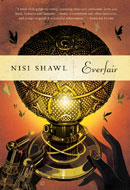 Much as the women in Hidden Figures had to deal with the very real legacy of racism in America, the characters in Nisi Shawl’s fictional Belgian Congo must deal with the legacy of colonialism in this alt history steampunk novel. The plot follows a diverse cast of characters in the titular Everfair, a colony created by well-meaning Westerners to create a safe haven for everyone, including escaped slaves. Of course, well-meaning doesn’t necessarily mean self-aware, and we see the Fabian Socialists from Great Britain struggling with their own unacknowledged racism, as they try to force Western values on the colonial inhabitants. Told from a multiplicity of voices—Africans, Europeans, East Asians, and African Americans—Shawl’s speculative novel is an examination of complex relationships in an often ignored period of history.
Much as the women in Hidden Figures had to deal with the very real legacy of racism in America, the characters in Nisi Shawl’s fictional Belgian Congo must deal with the legacy of colonialism in this alt history steampunk novel. The plot follows a diverse cast of characters in the titular Everfair, a colony created by well-meaning Westerners to create a safe haven for everyone, including escaped slaves. Of course, well-meaning doesn’t necessarily mean self-aware, and we see the Fabian Socialists from Great Britain struggling with their own unacknowledged racism, as they try to force Western values on the colonial inhabitants. Told from a multiplicity of voices—Africans, Europeans, East Asians, and African Americans—Shawl’s speculative novel is an examination of complex relationships in an often ignored period of history.
opens in a new windowRadiance by Catherynne M. Valente
opens in a new window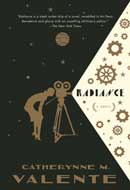 If your favorite part of Hidden Figures was how it combined science, ambition, and the personal lives of its leading women, then definitely check out Radiance by Catherynne Valente. Set in an alternate history 1986 where humanity has spanned the solar system, yet talking movies are still a daring innovation due to the patent-hoarding Edison family, Radiance follows Severin Unck as she creates her final film: a documentary investigation of the disappearance of a colony on Venus. Combining love, loss, family, quantum physics, and silent film, this pulpy space opera mystery does its best to unravel the scientific and human mysteries of a fantastical universe.
If your favorite part of Hidden Figures was how it combined science, ambition, and the personal lives of its leading women, then definitely check out Radiance by Catherynne Valente. Set in an alternate history 1986 where humanity has spanned the solar system, yet talking movies are still a daring innovation due to the patent-hoarding Edison family, Radiance follows Severin Unck as she creates her final film: a documentary investigation of the disappearance of a colony on Venus. Combining love, loss, family, quantum physics, and silent film, this pulpy space opera mystery does its best to unravel the scientific and human mysteries of a fantastical universe.
opens in a new windowBinti by Nnedi Okorafor
opens in a new window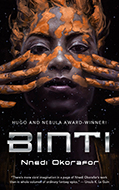 If you love reading about strong women who defy societal expectations because of their love of math and science, then the next book you should pick up is Binti, by Nnedi Okorafor. The titular Binti is a member of the Himba people, who never leave their homeworld. So when Binti denies her family and her people to attend the galaxy’s most prestigious university, Oomza Uni, she has to run away to get there. On the journey, her ship is attacked by Meduse, an alien race, and Binti must use all her resources—her intelligence, her mathematical and communication skills, and a piece of ancient Earth tech—to stay alive.
If you love reading about strong women who defy societal expectations because of their love of math and science, then the next book you should pick up is Binti, by Nnedi Okorafor. The titular Binti is a member of the Himba people, who never leave their homeworld. So when Binti denies her family and her people to attend the galaxy’s most prestigious university, Oomza Uni, she has to run away to get there. On the journey, her ship is attacked by Meduse, an alien race, and Binti must use all her resources—her intelligence, her mathematical and communication skills, and a piece of ancient Earth tech—to stay alive.
opens in a new windowThe Lifecycle of Software Objects by Ted Chiang
opens in a new window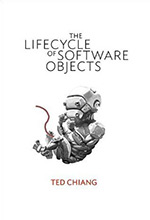 Hidden Figures is a story of women of color pushing boundaries to create a scientific future that they have a place in. While that fight is definitely not over, there are potential new conflicts on the horizon as well. Namely: if and when humanity actually creates artificial intelligence, how will we treat it? What will be the relationship between people and artificial entities? These are some of the questions at the core of Ted Chiang’s novella The Lifecycle of Software Objects. Chiang follows two people and the artificial intelligence they created as they deal with the upgrades and obsolescence that are inevitable for software. The question of nature versus nurture is about to take on a whole new meaning.
Hidden Figures is a story of women of color pushing boundaries to create a scientific future that they have a place in. While that fight is definitely not over, there are potential new conflicts on the horizon as well. Namely: if and when humanity actually creates artificial intelligence, how will we treat it? What will be the relationship between people and artificial entities? These are some of the questions at the core of Ted Chiang’s novella The Lifecycle of Software Objects. Chiang follows two people and the artificial intelligence they created as they deal with the upgrades and obsolescence that are inevitable for software. The question of nature versus nurture is about to take on a whole new meaning.

